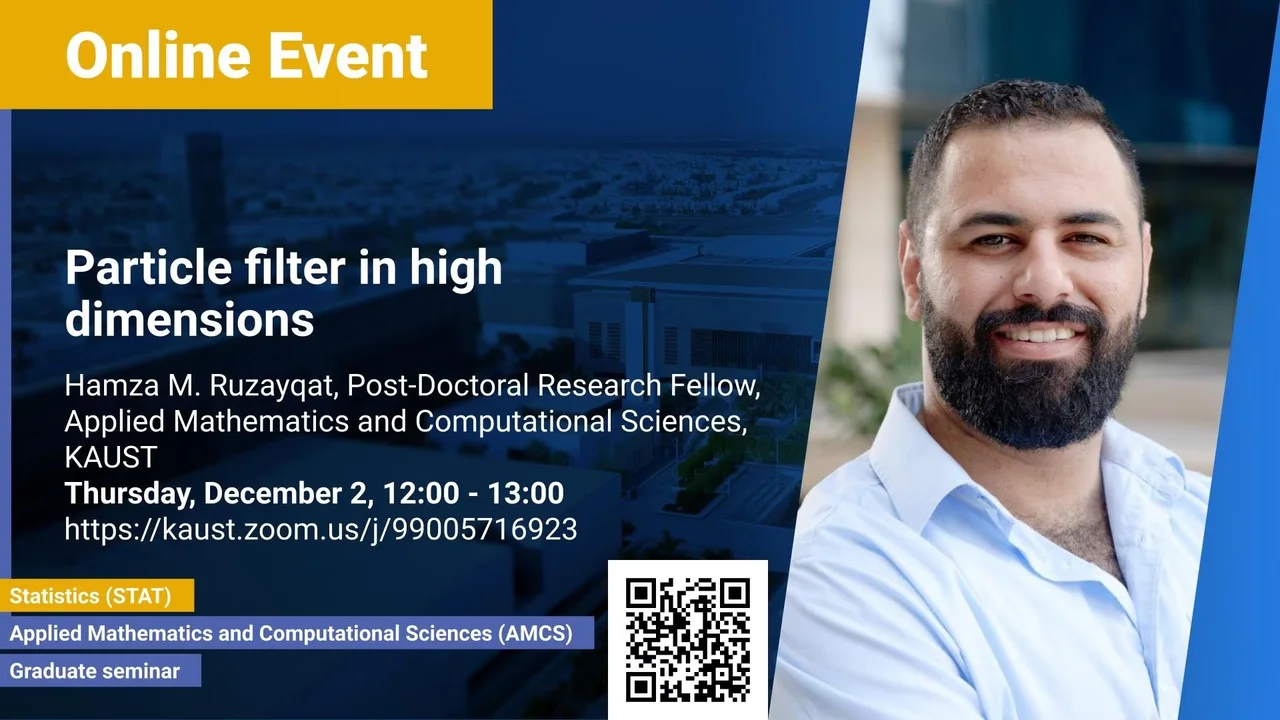
Particle filter in high dimensions
Filtering (or data assimilation) is the process of combining noisy observational data with an output of a numerical model to produce an optimal estimate of the evolving state of the system.
Overview
Abstract
Filtering (or data assimilation) is the process of combining noisy observational data with an output of a numerical model to produce an optimal estimate of the evolving state of the system. This process is performed every day at all major operational weather centers across the world. Filtering is not limited to weather forecasting, but it has many applications in statistics, finance, engineering and many other fields. In general, this process is a very challenging task as analytical solutions are typically not available and many numerical approximation methods can have a cost that scales exponentially with the dimension. In this talk I will focus upon the class of algorithms that are based on sequential Monte Carlo (SMC) methods in high dimensions. I will present a new method that aims to reduce the cost to O(N*d^2), where N is the number of simulated samples in the SMC algorithm and d is the dimension. The bias of our approximation is shown to be uniformly controlled in the dimension and exponentially small in time.
Brief Biography
Hamza Ruzayqat is a Post-Doctoral Research Fellow here at KAUST working with Professor Ajay Jasra. In 2019, Dr. Ruzayqat received his PhD in Mathematics from the University of Tennessee-Knoxville, USA. He received a concurrent Master degree from the same university and a Bachelor degree in Physics and mathematics from Birzeit University, Ramallah, 2012. The research interests of Dr. Ruzayqat are focused on Monte Carlo algorithms and data assimilation. In particular, he is working on particle filters, unbiased estimators and parameter estimation in discrete & continuous-time, linear & nonlinear models in low & high dimensions. Before joining KAUST, he was a research and teaching associate at the math department of UTK for 5 years.